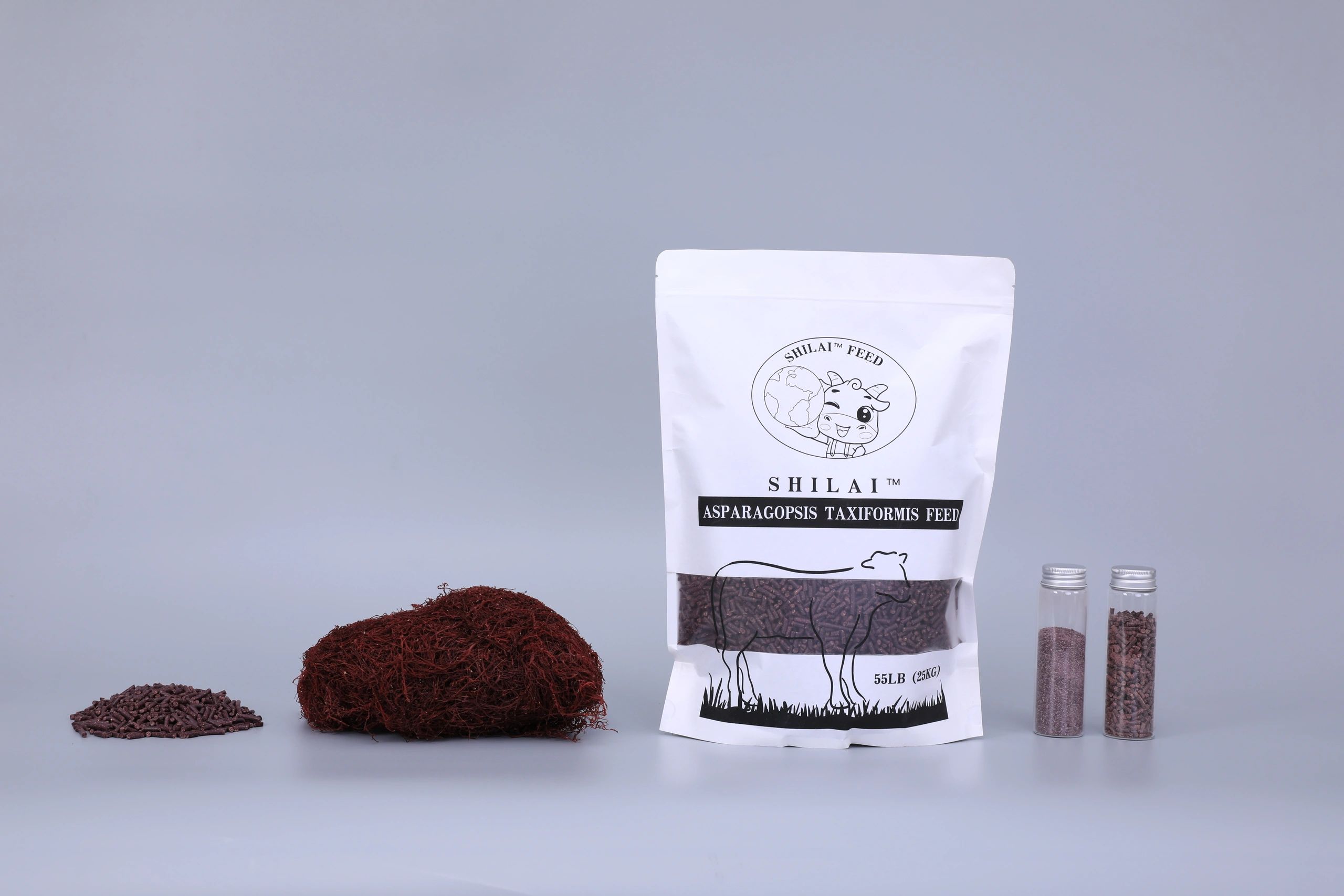Agriculture around the globe contributes heavily to greenhouse gas generation, predominantly via livestock operations.
The climate impact of methane surpasses that of carbon dioxide on a per-molecule basis, underscoring the urgency to reduce it.
Asparagopsis taxiformis, a species of red seaweed, is being researched as a promising method to cut livestock methane emissions.
By supplying a molecule that suppresses rumen methanogenesis, the seaweed reduces livestock methane output.
Including Asparagopsis taxiformis in livestock formulations has shown positive findings in pilot studies that indicate a feasible way to lower emissions from livestock.
- In addition to methane cuts, Asparagopsis taxiformis brings several beneficial side effects for farm operations.
- Improved feed conversion and vitality
- Opportunities to develop sustainable aquaculture-driven industries
More evidence and development remain essential, but Asparagopsis taxiformis offers considerable potential for sustainable emission reduction.
Leveraging Asparagopsis taxiformis Powder to Improve Animal Feeds
A powdered or concentrated form of Asparagopsis taxiformis has the potential to reshape animal feed approaches and outcomes.
The seaweed’s composition includes valuable nutrients and active molecules that can improve productivity metrics.
Blending A. taxiformis powder into rations has produced measurable methane cuts in research and supplies supportive nutrients.
More targeted research will help define optimal formulations, stability during processing, and sustained impacts on animal welfare.
Asparagopsis taxiformis as a Catalyst for Sustainable Animal Farming

This red marine species is being highlighted for its capacity to reduce the ecological burden of routine livestock operations.
Incorporating the seaweed into diets can translate into concrete methane cuts and improved sustainability outcomes on farms.
The literature points to additional gains in animal health and output that may accompany methane mitigation using Asparagopsis.
Extensive trials and commercial validation are needed, but initial evidence supports continued investment and testing.
Curbing Enteric Methane via Asparagopsis Feed Inclusion
Scientists identify Asparagopsis as a credible method to reduce methane generation within the rumen of ruminants.
Active substances in the algae modify rumen microbial dynamics, thereby reducing methane production.
- Experimental studies have reported large percentage reductions in methane when Asparagopsis is included in diets.
- Deploying Asparagopsis as a dietary additive represents an environmentally conscious mitigation tactic.
- There is growing industry momentum toward trialing Asparagopsis as part of feed strategies.
Asparagopsis: A Seaweed Changing the Landscape of Livestock Farming
A promising marine-derived solution has appeared, with Asparagopsis taxiformis capable of cutting methane in ruminants.
- Research trials show that diet inclusion of Asparagopsis leads to significant methane declines and consequential emissions benefits.
- Such innovations provide an optimistic opportunity to align agricultural productivity with climate goals via emission reductions.
As climate policy and industry responses develop, Asparagopsis offers a promising option to reduce livestock methane emissions.
Advancing Optimization of Methane-Cut Feeds Based on Asparagopsis taxiformis
Researchers are working to optimize processing, dosage, and formulation to maximize the methane-cutting efficacy of A. taxiformis.
The Science Behind Asparagopsis taxiformis's Methane-Lowering Effects
Scientists attribute the effect to Asparagopsis compounds that impair the methanogenesis process in the rumen.
The presence of bromoform is a likely mechanism for methane suppression, prompting ongoing study into dosage, residues, and safety.
Blending Asparagopsis into Diets for More Sustainable Farming
The combination of nutritive content and functional compounds makes Asparagopsis suitable for practical feed inclusion.
Integrating Asparagopsis into feeds offers advantages such as additional protein and micronutrients, improved digestion, and potential antimicrobial properties.
Asparagopsis taxiformis: A Natural Solution for a Greener Food System
This species is being explored as a marine intervention with the potential to reduce the environmental footprint of food production.
- In addition, the seaweed contributes essential nutrients and beneficial compounds to diets.
- Scientists and commercial stakeholders are exploring applications of Asparagopsis in aquaculture and terrestrial agriculture.
Bringing Asparagopsis into routine practices has the potential to reduce emissions associated with animal production.
Feed Additive Advantages of Asparagopsis for Livestock Health and Output
Asparagopsis is being noted for its ability to reduce methane while also supporting animal health and production metrics.
Experimental results show enhanced nutrient utilization and feed conversion in animals fed Asparagopsis, aiding growth and condition.
Research suggests potential antioxidant and immunological benefits that could improve overall animal welfare.
The momentum behind sustainable livestock practices enhances the appeal of Asparagopsis as studies and commercialization advance.
Building Methane-Cut Feeds with Asparagopsis for a Lower Carbon Future
Facing intensifying expectations to curb emissions, farming may turn to Asparagopsis as part of its mitigation toolkit.
- The leading hypothesis is that the seaweed’s constituents suppress methanogenic microbes and disrupt methane synthesis in the rumen.
- Empirical studies provide promising evidence that diet inclusion of Asparagopsis can substantially lower methane emissions.
Adopting this approach may offer a twofold benefit: greener feed and a pathway to transform agricultural emissions performance.